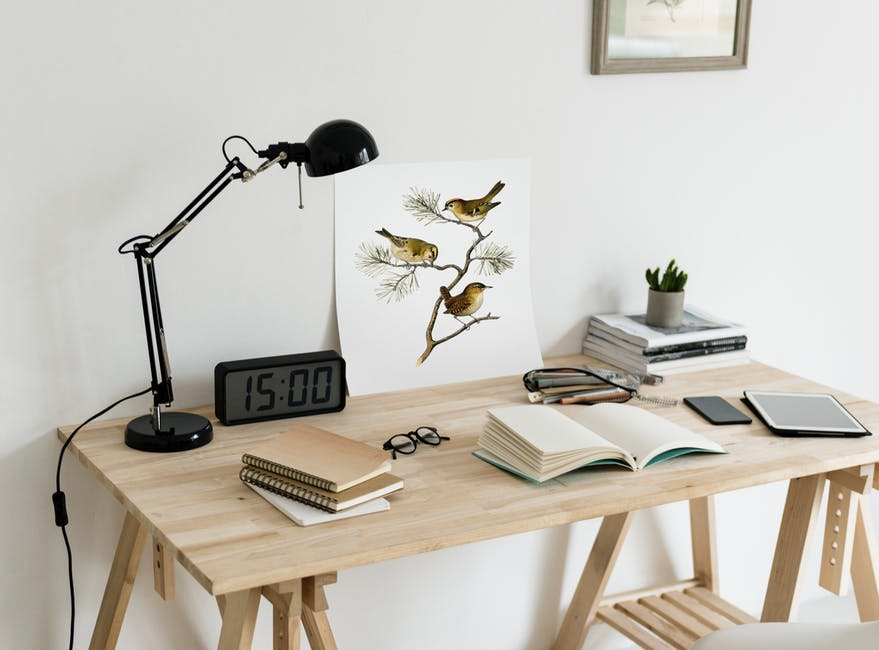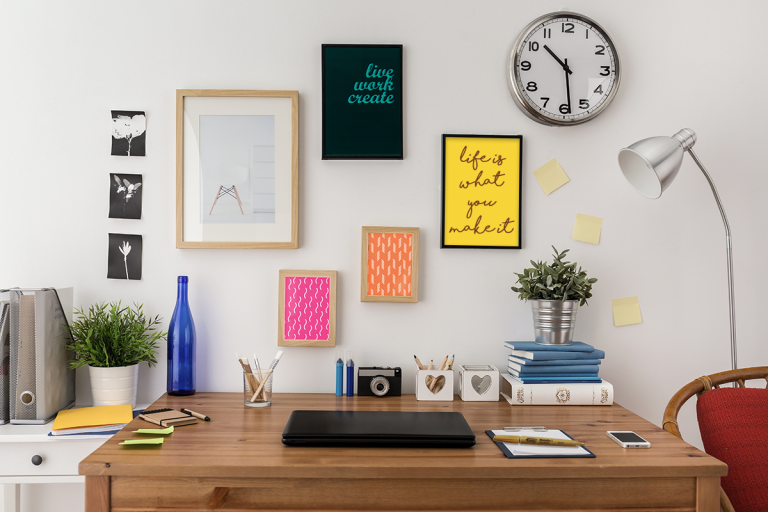Blog
How to Organize Your Study Area for Maximum Focus
Creating an organized study area is essential for maximizing focus, productivity, and efficiency. Whether you’re studying for exams, working on assignments, or simply trying to stay organized, the environment you work in plays a crucial role in your ability to concentrate and complete tasks. By organizing your study space effectively, you can minimize distractions and create an atmosphere that supports focused work. Here are some actionable tips to help you organize your study area for maximum focus.

1. Choose the Right Location
The first step in organizing your study space is selecting the best location. Your environment should be quiet, well-lit, and free from distractions. Ideally, find a space that is dedicated to studying, rather than one associated with other activities like relaxation or entertainment.
- Avoid distractions: Steer clear of areas near TVs, noisy rooms, or high-traffic spaces. If possible, set up your study area in a room with a door that you can close to block out noise and interruptions.
- Natural light: Choose a location with plenty of natural light if possible. Sunlight not only boosts your mood but also helps you stay alert and focused.
2. Declutter Your Desk and Surroundings
Clutter can be a major distraction that makes it harder to focus. A tidy workspace can help clear your mind and improve productivity. The key is to keep only the items you need on your desk and store away anything else that could divert your attention.
- Minimize desk items: Only keep essential items like your computer, notebooks, pens, highlighters, and a lamp on your desk. Remove anything unnecessary, such as personal items, food, or random objects that might distract you.
- Use storage solutions: Utilize drawer organizers, trays, or baskets to store your stationery, textbooks, and other supplies out of sight but within easy reach. Keeping things organized reduces clutter and creates a cleaner, more focused workspace.
3. Invest in an Ergonomic Setup
The physical setup of your study area can have a big impact on your ability to stay focused for long periods of time. Poor posture or discomfort can cause distractions and decrease productivity.
- Comfortable chair: Choose a comfortable, ergonomic chair that supports good posture. Your feet should rest flat on the floor, and your back should be supported. Avoid sitting in chairs that are too soft or lack proper lumbar support.
- Desk height: Make sure your desk is at an appropriate height to prevent strain on your wrists and shoulders. Your arms should be at a 90-degree angle when typing, and your eyes should be level with the top of your screen if you’re working on a computer.
4. Keep Your Study Materials Organized
Having your study materials organized is key to maintaining focus. When everything is in its place, you’ll spend less time searching for things, which means more time dedicated to studying.
- Use folders and binders: Organize your study materials in labeled folders, binders, or file organizers. Keep separate folders for each subject or project so you can easily access what you need.
- Color-code: Color-coding your notes and supplies can help you find items quickly and add a visual element that makes studying more engaging and less stressful.
- Use digital tools: If you prefer digital organization, apps like Google Drive, Evernote, or Notion can help you organize and store notes and study materials in an easily accessible way.
5. Set Up Proper Lighting
Proper lighting is essential to minimize eye strain and stay alert during study sessions. Poor lighting can lead to headaches and make it harder to focus.
- Natural light: If possible, place your study desk near a window so you can benefit from natural light. Daylight is known to improve concentration and mood.
- Task lighting: A desk lamp with adjustable brightness is a great investment. Aim for a lamp that provides ample lighting for reading or writing, but isn’t too harsh or bright. Consider a warm light to create a calm, focused atmosphere.
- Avoid glare: Position your computer screen or study materials in a way that prevents glare from windows or overhead lights, which can cause discomfort and eye strain.
6. Eliminate Digital Distractions
In today’s digital age, smartphones, social media, and other devices can be major distractions when studying. Managing your digital environment is essential for staying focused.
- Turn off notifications: Before starting your study session, mute your phone or put it on “Do Not Disturb” mode. You can also use apps like Focus@Will or Forest to help you stay focused by blocking distracting apps and websites.
- Use study apps: Take advantage of productivity apps that can help you stay organized and focused. Tools like Trello for task management, or Pomodoro timers like Be Focused, can help you structure your study time and prevent procrastination.
- Avoid multitasking: Stay focused on one task at a time. Checking your phone or switching between multiple tasks can disrupt your focus and lead to lower productivity.
7. Create a Comfortable, Inspiring Environment
An inspiring and comfortable environment can boost your motivation and make studying feel less like a chore.
- Personalize your space: Add some personal touches to your study area, such as motivational quotes, plants, or artwork. These items can help create a positive atmosphere and keep you motivated during long study sessions.
- Add greenery: Small plants can improve air quality and create a calming atmosphere. Studies have shown that having plants in your workspace can reduce stress and increase focus.
- Comfortable accessories: Use cushions or a cozy throw blanket if you study in a chair or seat for long periods. Being physically comfortable allows you to focus better without the discomfort that can pull your attention away from your work.
8. Establish a Study Routine
A well-organized study space should be paired with a study routine to help you stay on track. A regular routine signals your brain when it’s time to focus and get to work, making it easier to get into the right mindset.
- Set specific study hours: Determine the times of day when you are most productive, whether it’s early in the morning, late afternoon, or at night, and stick to a consistent schedule.
- Break tasks into smaller chunks: Rather than cramming for hours, break your study sessions into smaller, more manageable blocks of time. Use techniques like the Pomodoro Technique (study for 25 minutes, then take a 5-minute break) to stay focused without burnout.
- Prioritize tasks: Use a to-do list or planner to prioritize your study tasks. Starting with the most important or challenging tasks will help you stay focused and tackle difficult material when you’re at your most alert.
9. Maintain Your Study Area Regularly
An organized study area doesn’t stay that way on its own. Regular maintenance is key to keeping the space conducive to studying and focus.
- Daily clean-up: At the end of each study session, take a few minutes to tidy up your desk and put away any materials you won’t need for your next session. A clutter-free workspace will be inviting and ready for you to dive right into your next study session.
- Weekly organization: Once a week, reorganize your study materials, check for any outdated notes or papers, and update your filing system. Keeping things organized regularly prevents clutter from building up.
10. Create a Study Zone with Minimal Interruptions
In order to maintain focus, you need to minimize interruptions. This is especially important if you’re studying in a shared space.
- Set boundaries: If you’re sharing a space with family members or roommates, let them know your study hours so they can avoid disturbing you during that time.
- Use noise-canceling headphones: If you study in a noisy environment, noise-canceling headphones can help block out distractions and help you stay focused. You can also play instrumental music or white noise if it helps you concentrate.

Conclusion
An organized study area can significantly improve your focus, productivity, and overall success. By choosing the right location, minimizing distractions, optimizing your desk setup, and maintaining a regular study routine, you can create a space that enhances your ability to concentrate and complete tasks efficiently. With a well-organized environment, you’ll be able to focus more effectively, reduce stress, and increase your chances of success in your academic endeavors.


